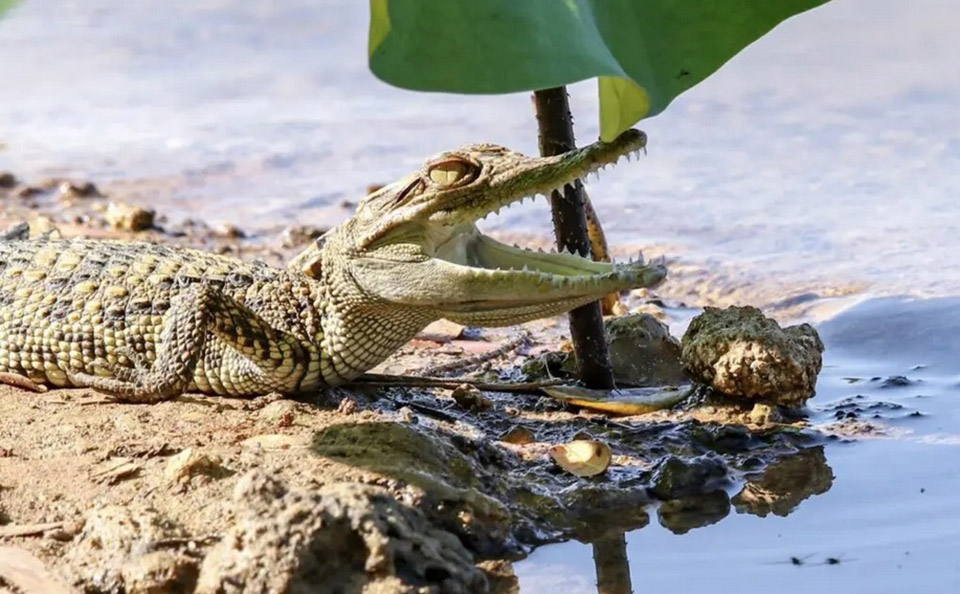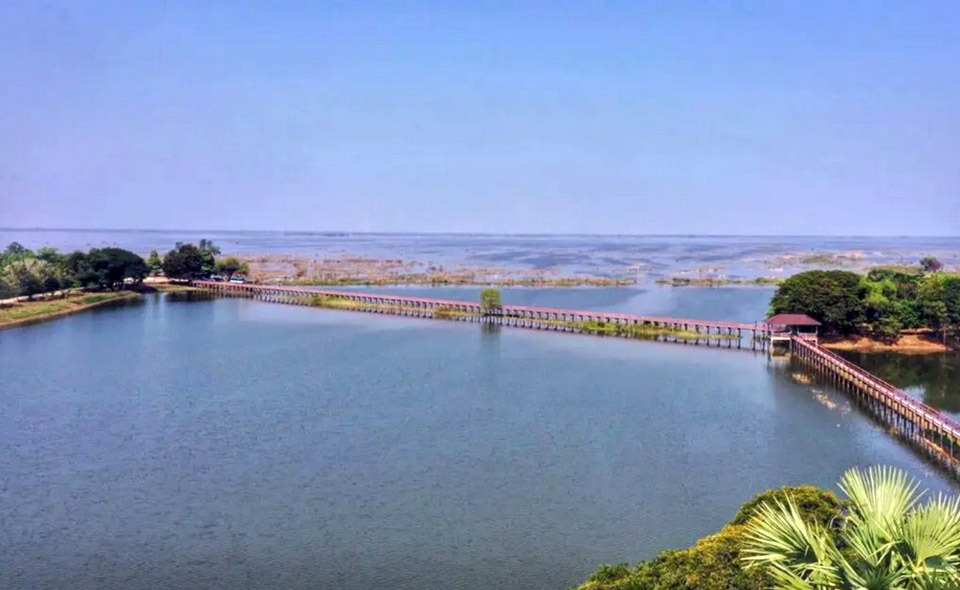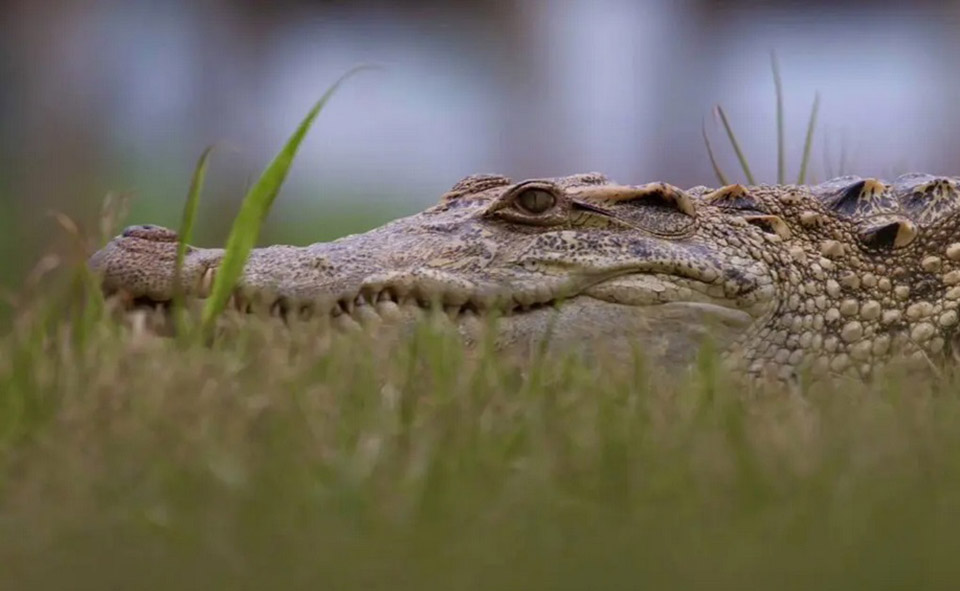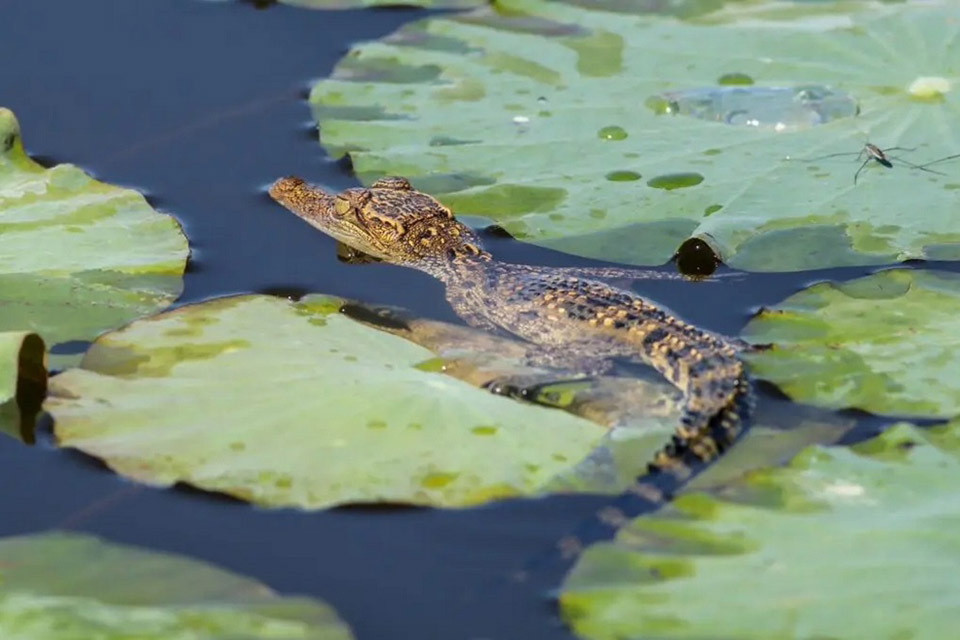
The recent sighting of freshwater crocodile offspring for the first time in 7 years, suggest balanced ecosystem, with cooperation from surrounding communities in conservation efforts.
Mr. Attapol Charoenchansa, Director-General of the Department of National Parks, Wildlife, and Plant Conservation, disclosed that officials surveyed the area of Beung Boraphet, Thailand’s largest freshwater swamp and lake in Nakhon Sawan province found about 35 freshwater crocodiles inhabiting in two locations around the mouth of Boraphet canal and within the prohibited hunting zone of Beung Boraphet Wildlife Sanctuary.
Among these, crocodiles nesting in the prohibited hunting zone were found to have laid eggs, with 2 nests discovered, one containing 5 crocodile eggs and the other containing 3.
In the past 7 years, this is the first time crocodile eggs have hatched into hatchlings. Previously, only crocodile eggs were found, but when hatched, they turned out to be infertile. Factors contributing to the successful hatching of crocodile eggs into hatchlings are attributed to the rich biodiversity of the ecosystem, suitable weather conditions, and the cooperation of local communities in not disturbing the habitat, allowing crocodiles to lay eggs and hatch offspring in the area.

Additionally, efforts were made to raise awareness among tourists, providing convenience and safety measures, resulting in no reported disturbances or illegal activities in the area.
The Beung Boraphet Non-Hunting Zone covers an area of 26,500 acres of wetland, with a total area of 53,094 acres. It is rich in biodiversity, benefiting the growth of various plants and animals.
Currently, Siamese crocodiles have been listed in Appendix 1 of the Convention on International Trade in Endangered Species of Wild Fauna and Flora (CITES), classified as critically endangered in the wild.
Purebred Siamese crocodiles are extremely rare in captive breeding facilities due to economic reasons, as they have been crossbred with other crocodile species, resulting in the loss of purebred lines. (TNA)










